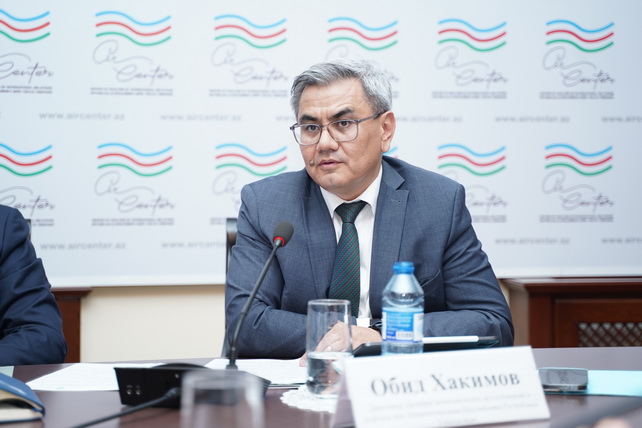
Obid Hakimov: The Share of the Unobserved Economy in Uzbekistan’s GDP Has Decreased to 34.8%
Obid Hakimov: The Share of the Unobserved Economy in Uzbekistan’s GDP Has Decreased to 34.8%
Tashkent, Uzbekistan (UzDaily.com) — On 11 August, President of Uzbekistan Shavkat Mirziyoyev reviewed a presentation dedicated to improving the system for combating the shadow economy.
Obid Hakimov, Deputy Advisor to the President on Economic Policy and Director of the Center for Economic Research and Reforms (CERR), reminded in an interview with the TV channel “Uzbekistan 24” that since gaining independence in 1991, only the informal sector was included in the unobserved economy component when calculating the country’s GDP. It was only in 2024 that, for the first time, the hidden (shadow) economy was separately calculated and accounted for in the GDP.
The unobserved economy refers to the segment of economic activity that official statistics are unable to fully capture.
It includes both informal and shadow components. The informal economy covers small-scale business and services carried out without registration — such as home clothing repairs, unlicensed taxis, or market trading without permits. The shadow economy, on the other hand, is the part of legal activity hidden from the state — for example, when entrepreneurs deliberately underreport income to reduce tax payments or pay wages “under the table.”
According to Hakimov’s estimates, the volume of the hidden economy exceeds 120 trillion soums, with the largest share concentrated in the services sector, agriculture, and construction. Over the past seven years, its scale has been significantly reduced: while in 2016–2017 the share of the unobserved economy in GDP was 50–55%, today it has dropped to 34.8%. The level of informal employment has also nearly halved — from 60% (7.9 million people) in 2017 to 38% (5.4 million people).
Hakimov noted that combating the shadow economy continues the policy of poverty reduction. According to a CERR survey, 22% of enterprises employ workers without official registration. At the same time, the average salary of officially employed workers is 1.3 million soums higher than that of those working illegally. In agriculture, the difference reaches 1.5 million soums; in trade — 1.3 million; in construction — 1.27 million; and in housing and communal services and catering — 1.1 million soums.
He also reported that 18% of entrepreneurs continue to pay salaries “under the table.” Among the main reasons for the persistence of the shadow economy, respondents cited low costs (49%), simplified hiring and dismissal procedures (36%), the possibility of engaging seasonal workers (33%), and the absence of tax obligations (13%).
At the meeting, according to Hakimov, the Ministry of Economy and Finance presented proposals for each area, which, as the president emphasized, should not create an excessive burden on business. The focus is on reducing costs, simplifying personnel procedures, and introducing new approaches to hiring seasonal workers without fines and sanctions.
Shavkat Mirziyoyev stressed that control systems alone cannot solve the problem of the shadow economy — it is also necessary to develop tax culture among the population and business, and encourage honest business practices. The president instructed to apply an individual approach to each sector, creating conditions under which transparent and legal business will be profitable. In this regard, directives were given to improve and digitize tax administration, expand incentives for entrepreneurship, and improve labor relations.
According to the head of state, fostering a tax culture should become a collective task for the entire society.